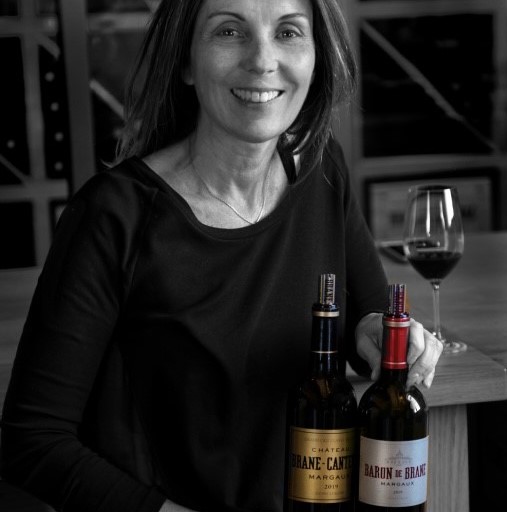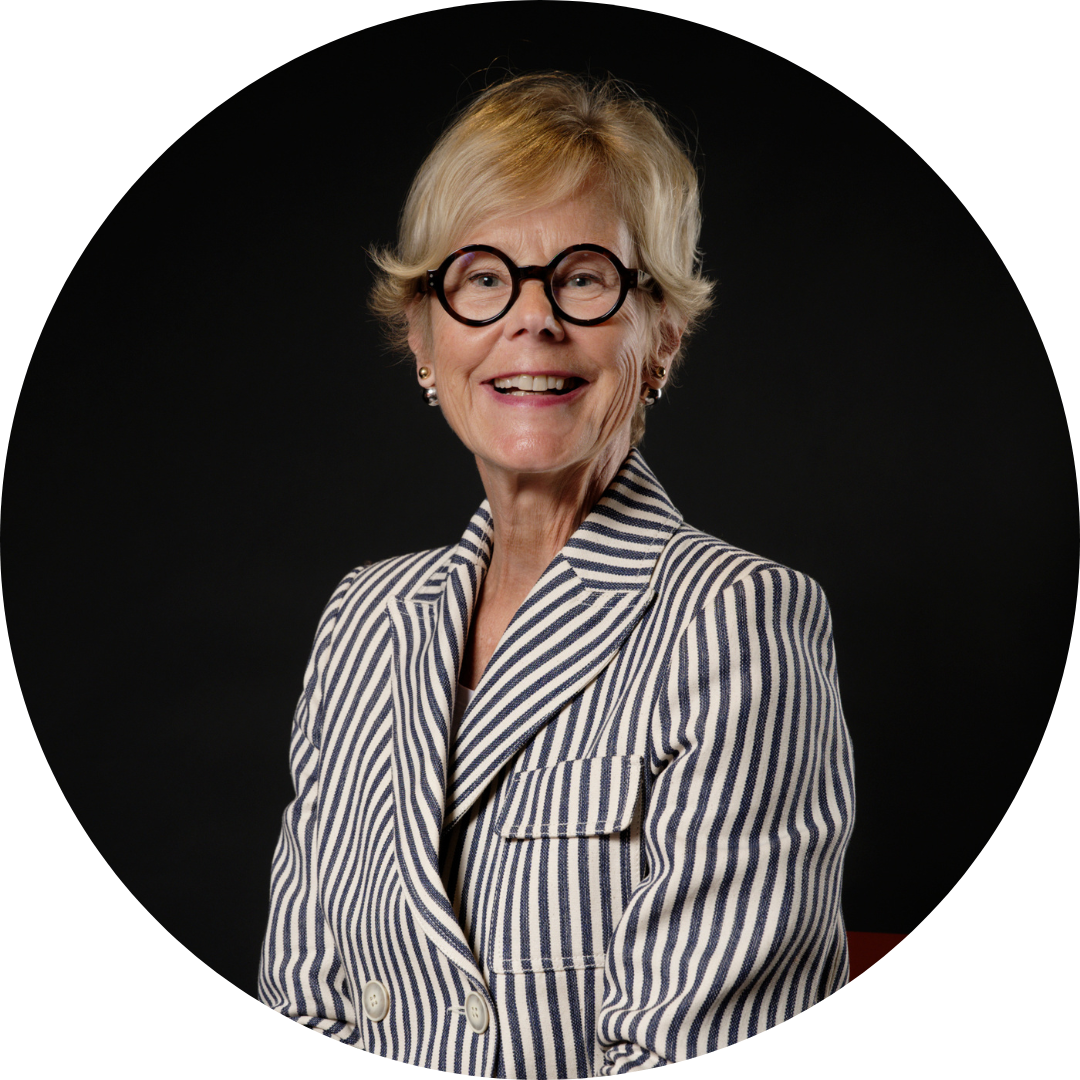Marie-Hélène Faurie
Commercial Director and Right-hand to the CEO, Henri Lurton
Château Brane-Cantenac
2ème Grand Cru Classé
MARGAUX
Presentation
Gerda: Can you tell us a little about yourself and how you started your career here in Bordeaux?
Marie-Hélène Faurie: I had no vocation to work in wine, but I discovered a passion for it along the way. My father, a doctor, passed on to me an essential quality: listening.
It’s an invaluable asset when it comes to understanding our commercial issues, but also for uniting our teams in a demanding environment. I’m a discreet person, a quality that has often helped me to listen and adapt. Of course, in our profession, you sometimes have to put yourself forward, but I think that this discretion allows me to act with a more collective vision. The ego can be useful in this world, but it has never dominated me. I use it as a tool, without letting it take over. In a world where everything moves fast, these qualities seem essential to me if we are to make lasting progress.
G: That’s a good match for Brane-Cantenac, which, for me, is a splendid wine in all its discretion. It’s beautiful, especially in today’s world, where you sometimes feel you have to shout the loudest to be heard.
MHF: Yes, that’s true. When I started my career in Bordeaux, wine was a real revelation for me. As luck would have it, I made my debut at Château Latour, where the director at the time, a Scotsman, immediately put his trust in me. He was looking for a sales person to develop sales, preferably someone who spoke English, a skill that wasn’t very common at the time. Having spent a few years in London, I was able to meet this need.
I still remember my first tasting with him, at 9 o’clock in the morning, faced with 25 samples of Latour. At the time, I didn’t fully realise what an exceptional experience I was having, but it was a key moment, and I learned an enormous amount.
I was also lucky enough to meet another outstanding personality: one of the leading courtier on the market, who had set up his own trading company. He too placed his trust in me, but in a different area: that of understanding and analysing market dynamics. As a visionary, he taught me a great deal and opened up undreamt-of perspectives.
G: What are the main challenges you face in your job?
MHF: We’re facing a number of challenges, whether macroeconomic, political or social, or related to the Bordeaux marketplace, which is currently in a fragile state. At the same time, wine consumption is changing: it’s declining overall, especially among young people, but it’s becoming more qualitative among wine lovers.
In terms of production, climate change remains a major challenge. Although I’m not directly involved, these issues are regularly addressed as a team, under the direction of Henri Lurton and Christophe Capdeville, the vineyard manager.
At Brane-Cantenac, we know how to adapt, combining innovation with a return to common-sense practices such as agroforestry and culture. These adjustments, both in the vineyards and in the winery, require rigour and human investment. Our new ageing cellar illustrates this quest for excellence: it combines tradition and modernity to sublimate our wines with even greater precision.
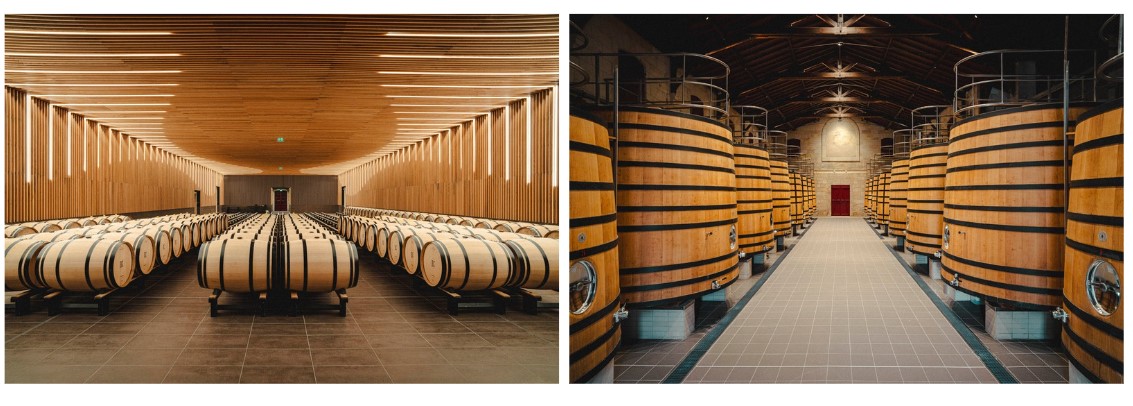
Brane-Cantenac cellar + vat room
The Business
G: What are your main markets?
MHF: Brane-Cantenac is still a French brand. It’s essential to be strong in your home market, where wine lovers are loyal and curious, and have a special bond with wine. They often have Brane in their cellar, and we encourage them to taste younger wines than their parents. Our Swiss and British markets are historic and growing, as is Northern Europe, where the monopolies remain key partners. Together, these markets account for between 50 and 60% of our production.
In the United States, growth has been strong for the last fifteen years. Americans, who are very attached to journalists’ notes and “brilliant” vintages, sometimes lack confidence in their own tastes. However, the restaurant channel is making good progress, despite the high price multipliers that limit access to great wines, which quickly become too expensive on wine lists. We hope that more restaurateurs will adopt a fairer pricing policy to encourage wine rotation. It’s a win-win situation!
In China, Brane has never been seen as a must-have label, in a market dominated by very large labels. With hindsight, this is almost an advantage, as this market is currently in difficulty. We continue to work with specialists in these markets.
On the other hand, South-East Asia, despite individually modest markets (Vietnam, Philippines, Malaysia, Indonesia, Singapore, Thailand), has made good progress. Korea and Japan remain key markets for us.
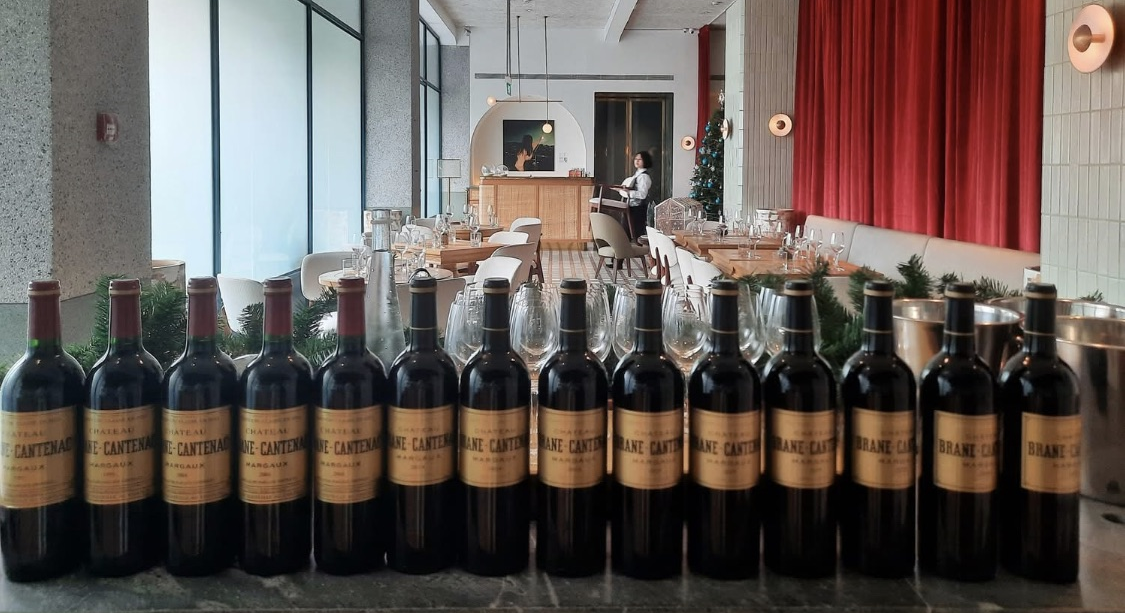
G: What are your priorities in terms of business development?
MHF: Our priority is to consolidate our existing markets, particularly in Europe. We recently recruited Benjamin Fraysse, a young man of 38, who has solid experience in wine and a good knowledge of distribution. He brings a fresh perspective, very much in tune with the expectations of young consumers. His dynamism and fresh ideas enrich the team. It also gives us an even greater opportunity to reach out to consumers on a global scale and support Brane’s reputation.
Thank you to Henri Lurton, who, despite the difficult economic climate, continues to innovate and maintain a long-term vision for the estate. This enables us to remain firmly rooted in our approach, even in the face of challenges. In strategic markets such as the United States and Asia, we are focusing on high-end experiences, such as exclusive dinners or collaborations with prestigious sommeliers. We will continue to develop markets that are more recent for us, such as Africa and Latin America.
G: Do you also welcome visitors to Brane-Cantenac?
MHF: Yes, that’s also a major focus, but we don’t do wine tourism in the traditional sense. Rather than mass visits, we favour tailor-made experiences, by appointment only. When consumers open a bottle of wine, they’re looking for an emotional experience, and that’s what we want to offer on the spot.
We’re lucky to have Laetitia, a passionate educator with many strings to her bow, including technical training in wine. She tailors each visit to your expectations and helps to develop our B to C business. She also forges valuable links with Bordeaux sommeliers, strengthening our presence on local wine lists.
Madeleine Lurton, Henri’s daughter, recently joined the team to oversee marketing and communications. This marks an important development for Brane-Cantenac, in line with the arrival of the 5th generation. This year marks 100 years of the Lurton family at the estate, a symbol of the successful transmission of a family heritage into the 21st century
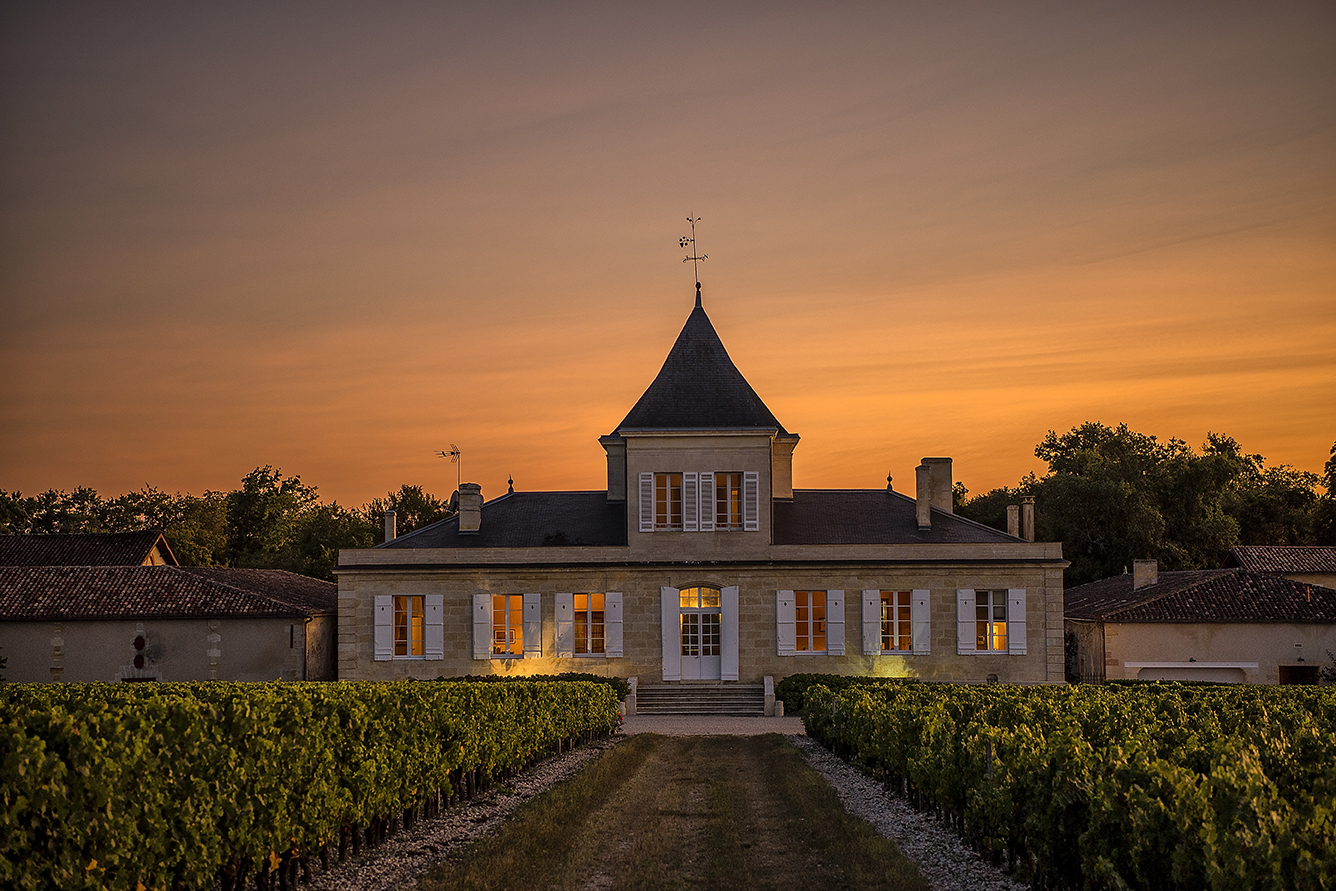
G: Do you think there’s a difference between a property managed by a family or by an institution?
MHF: Yes, there are differences, but they’re not so clear-cut. A family-run property also has to meet financial imperatives, because that’s the lifeblood of the business. That said, family management often offers a more personal and long-term vision. At Brane, for example, the wine style reflects the history and values of the family, which remains true to its convictions while adapting to the challenges of the market. In a large group, the rotation of teams or managers can sometimes impose a more pragmatic strategy, focused on immediate profitability. Both approaches have their strengths, but they are expressed differently.
G: How did the Primeurs 2023 campaign go?
MHF: The Primeurs campaign is always a key stage in showcasing our wines and our expertise. This year, we knew from the outset that it wasn’t going to be easy, but the necessary adjustments were more marked than expected. We took the time to listen to the market and, thanks to that, we managed to sell our harvest, which is still a source of satisfaction.
Having said that, we have to be cautious: our negociant, although very loyal, have not managed to sell all their stocks, which is different from the dazzling success of 2022, when demand was exceptional. This year, despite an excellent vintage, the circumstances were complex, with economic and geopolitical tensions. The success of a campaign depends on many factors: demand, the vintage, the economic context, and we remain attentive to finding the right balance each year. At the end of the day, our partners’ success is inextricably linked to our own.
G: On December 6th, I attended the tasting of the 2024 vintage. Why did Brane-Cantenac take part?
MHF: We immediately supported the initiative of François-Xavier Maroteaux, who had reacted appropriately to the premature criticism of the 2024 vintage, which had been described as ‘stillborn’. We had to prove with facts that 2024 is not comparable to weak vintages, such as 2013, as we had heard.
The event was organised quickly, with a limited number of châteaux, mainly family estates, ready to take up this technical challenge. Selecting batches in December, so early in the maturing process, was a first for us. But it was necessary to meet the need for education and to reassure our partners.
The tasting was a success. Our technical teams did a remarkable job. Henri Lurton and Christophe Capdeville were on hand to provide detailed explanations of each batch. I was also impressed by the commitment of the sales staff present, who were curious to know more about the differences between the grape varieties and asked lots of questions. It was an invaluable opportunity to exchange ideas and to defend this vintage.
G: I loved taking part in this tasting and I tasted a batch of Brane-Cantenac Cabernet Franc from your Terrace 4 platter. It was excellent, and as Christophe explained to me, Cabernet Franc is a rather fickle grape variety. But when it reaches this level of quality, it’s a very good sign that the 2024 vintage won’t be bad at all.
MHF: Exactly! Cabernet Franc is a demanding grape variety, but when it reaches this level, it brings a beautiful complexity. In 2024, Cabernet Sauvignon will also be remarkable at Brane, with the density and depth that define our style. And even though we’ve been pleasantly surprised by the aromatic quality of our Merlot, it’s really the Cabernets that will mark this vintage.
G: You once told me that Robert Parker never really understood Brane-Cantenac. What do you think of the scoring system today?
MHF: Today, many journalists and critics assess our wines, and there is no longer one dominant figure like Robert Parker was. Some are more influential and generate more buzz. We’re open to anyone who wants to taste our wines, and there’s now a real dialogue with journalists, which wasn’t the case with Parker, who didn’t return to Brane between 1985 and 2009, and he retired in 2014! The plurality of opinions is interesting, but it can dilute the message. For the consumer, it’s important not to limit oneself to the notes, and to trust one’s supplier, negociant or otherwise.
G: You’re often in contact with customers, sommeliers and end consumers. Are scores still important to them?
MHF: Ratings are still important, especially for our partners and negociants, because they still have a strong influence on purchases. However, these days it’s only the very high scores, from 98 upwards, that really make the difference. This has led to a certain dilution of their impact, and means that you have to look beyond the simple figures to fully appreciate a wine. The journalists’ comments, often very poetic and rich in sensitivity, add real value and help us to understand the wine better.
Distribution Today & Tomorrow
G: What do you think of the current market situation?
MHF: I remember that at the start of my career, in the mid-90s, after a few difficult years, a negociant said to me: ‘Bordeaux is entering a new era’. He was right, but that good period was followed by another crisis. There have been others. The Bordeaux market is cyclical, and today we’re going through a particularly severe downturn, comparable to the 1970s according to some old-timers, which I didn’t experience.
That said, I have confidence in Bordeaux. This crisis is important, but it’s also an opportunity for us to adapt and be agile. Markets like China and the United States will evolve, and it’s up to us to adjust. Consumer habits are changing, the climate is changing, and there are economic challenges to be met. But there will be an ‘after’, and we’ll know how to reinvent ourselves to meet it.
G: Yes, everything has happened quickly and at the same time. Was it to be more agile that you recruited Benjamin Frayse to your team? Henri Lurton also made a major commitment to this.
MHF: Yes, it’s essential. In times of crisis, it’s tempting to withdraw, but on the contrary you have to keep moving forward, thoughtfully and as calmly as possible. It’s by staying focused and creative that you find opportunities, even in difficult times.
G: How can we captivate the new generation with our wines?
MHF: The new generation is curious, and we need to attract them to wine. Perhaps through organic or natural whites, wines that are more accessible, fresh and fruity. Just yesterday, some young people tasted a Brane-Cantenac 2020 and said they wanted to drink it this evening.
The world is moving fast, and we need to keep up without losing the soul of Brane-Cantenac, which has retained its ageing potential. But to convey this, we have to go out and meet them, open bottles and tell the story of the vintages, old and new.
We can be criticised for the CO2 footprint of our trips, but in the wine business, getting out into the field is essential. Fortunately, we are also welcoming more and more visitors to the estate. Bordeaux has succeeded in modernising itself, with a remarkable level of hospitality and a diversified offer. The region remains competitive, even for unclassified wines. There are treasures at every price point. But these stories need to be told. The global offer is immense, but Bordeaux has everything it takes to remain proud: work, explain, and go out and meet people. When I started out, only a minority of estates were doing this.
G: So your profession has changed a lot?
MHF: Yes, my job has changed a lot. In the past, the estate entrusted everything to the negociant: production on one side, distribution on the other. Today, everything is different. The negociant is still the key to distribution, but the estates have had to take ownership of their image, their communication and their marketing.
Marketing has never been the core business of negociants, and they no longer have the time to devote to it. So it’s up to the estates to take on this responsibility, as well as ensuring the quality of their distribution and guiding their wines towards their target markets.
This means overcoming a certain mistrust in the relationship between the estate and the negociants. Trust is crucial. It’s true that there are different interests: the buyer wants to pay less, the estate wants to sell better. But if we work intelligently, we can find common ground and move forward together.
G: Could you elaborate a little on the relationship between you, the estates, and us, the négociants on the Bordeaux marketplace?
MHF: The relationship between estates and négociants is complex. The estates have a history and a deep attachment to their land, which gives them a unique nobility. But this attachment can sometimes make them overconfident or disconnected from certain market realities.
For their part, the négociants, who are at the heart of the trade, have invaluable expertise and a very pragmatic vision. However, they can sometimes underestimate the value of the colossal efforts and investments required to produce great wines.
We need to overcome these misunderstandings and build trust. This means more direct dialogue and listening to each other. The estates need to have a better understanding of the challenges facing the wine trade, just as the negociants need to recognise the passion and sacrifices that underpin our work. By moving forward together, with greater transparency and respect, we can find a balance. This is essential if we are to preserve the richness and diversity that make Bordeaux so great.
G: Are you still confident about Place de Bordeaux?
MHF: Absolutely. It’s a fabulous tool, unique in the world, and extraordinary when everything works well. This liberal system must remain as it is. Taking an interest in distribution, as we are doing, does not mean encroaching or interfering. It’s simply essential to get involved.
La Place has a remarkable ability to react quickly and to recycle wines on the market, thanks to solutions that are often effective and well tried and tested. This is its great strength. But today, this responsiveness has gone too far. The markets are saturated with discount prices, which is seriously damaging the image of our wines and their perceived value.
I have confidence in this system, but we need to think together about how to better channel these dynamics, because these discount offers are undermining the whole ecosystem.
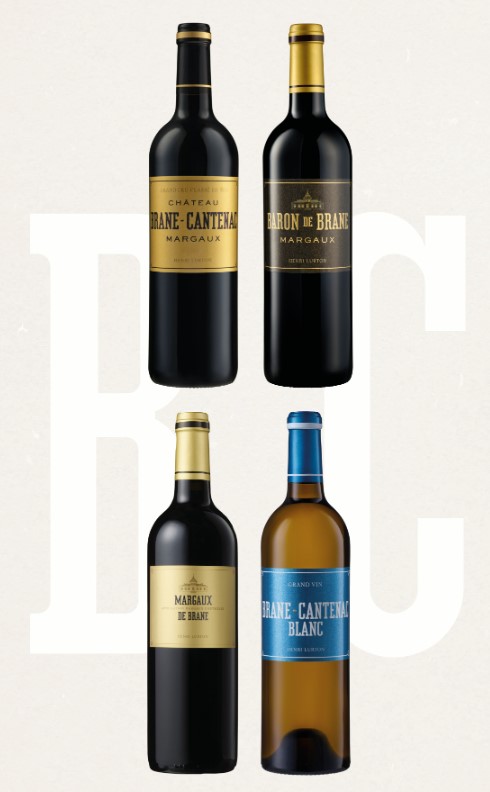
G: Perhaps it’s also due to the fact that it’s a very competitive system. How many negociants do you work with?
MHF: We work with 70 negociants, which in today’s highly competitive market may seem like too many. The market has changed, and we have to rethink the way we work together. The idea is to adapt to the reality of the market and perhaps reduce the number of partners we work with.
G: In recent years, we’ve seen growing interest from the market in wines from outside Bordeaux coming to La Place. What do you think of this trend?
MHF: Having been a negociant myself, I understand this trend. In this business, it’s natural to want to increase your margins, grow your sales and expand your team. That said, it’s important not to lose sight of La Place’s identity and what has made it so strong: its unique expertise and its benchmark image, which remains the Bordeaux estates.
G: Yes, it’s also in line with market trends. Today’s wine lover wants to enjoy a Brane-Cantenac, tomorrow a great Italian wine, and the next day a Napa Valley grand cru.
MHF: The Bordeaux negociants didn’t want to leave this opportunity to the English, and that’s a development that shouldn’t be ignored. However, Bordeaux has a specific organisation that it is essential to preserve. Where I’m more critical is with sworn courtier, who in my opinion have no business being involved in the sale of foreign wines. Bordeaux negociants are perfectly capable of handling this themselves.
I think we have a lot to learn from foreign wines. If anything, courtier could play a role in helping us to understand how they work and to better situate our wines in this global landscape. Today, we should be able to position a Brane-Cantenac not only in relation to the other Bordeaux grands crus, but also in relation to these great international labels.
G: How do you see the role of the courtier today?
MHF: Here too, we need to rethink our role. More than ever, courtier need to take a greater interest in our business. Historically, they were present in our countryside, tasting the wines and even taking part in the blending. Some of them still drop in during the harvest or at various stages of production, but this should happen more often.
We need to get closer to the courtier, both in terms of production and distribution. They are our key contacts between us and the negociants. We don’t have the time to talk to all the negociants, and you don’t have the time to talk to all the châteaux. Courtier are there to act as intermediaries. It’s vital that they do this accurately and precisely. Today, there are even different brokerage professions. There’s the one I explained to you, and then there are courtier – who, incidentally, excel in their field – who spend a large part of their time behind their screens and devote themselves mainly to trading. The Place de Bordeaux is magical for this. It’s a place where supply and demand can be regulated at any given time. For our part, we prefer courtier who are closest to us. Those who understand where we want to go, see Brane’s potential and support us in our vision.
G: Are you a member of the Union des Grands Crus?
MHF: Yes, Henri thinks it’s essential to work together. In times of crisis, choices will have to be made, but our commitment to the Union des Grands Crus remains strong. We will continue to invest, recruit and produce high-quality wines, while respecting certain budget restrictions. Our participation in UGC events will be more selective, but this tool remains crucial for communicating Bordeaux and preserving the spirit of collaboration.
Harvest 2024
 Watch the harvest 2024 video
Watch the harvest 2024 video
G: I visited Brane-Cantenac at the beginning of the harvest. How did the end of the harvest go?
MHF: The harvest went very well. They lasted three weeks, with generally good weather. We were lucky to have an excellent team, and the atmosphere was very positive. Pierre, our vineyard manager, and Thierry, his team leader, managed everything perfectly. Florent, our cellar master, was also very responsive, making sure that everything ran smoothly. As for Christophe Capdeville, our technical director, he brilliantly oversaw his 34ᵉ vintage at Brane-Cantenac this year.
G: Yes, he and Henri are a perfect pair. They always stay calm, very focused, and you can feel a real serenity between the two of them.
MHF: Indeed, Henri and Christophe are a very complementary duo. They know each other perfectly and understand each other quickly, which enables them to work very efficiently and calmly. This relationship of trust makes it much easier to manage the estate and it’s a pleasure to work with them.
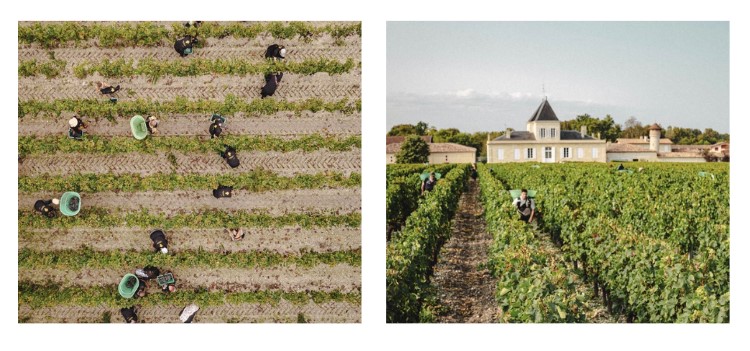
Gerda BEZIADE has an incredible passion for wine, and possesses a perfect knowledge of Bordeaux acquired within prestigious wine merchants for 25 years. Gerda joins Roland Coiffe & Associés in order to bring you, through “Inside La PLACE” more information about the estate we sell.

